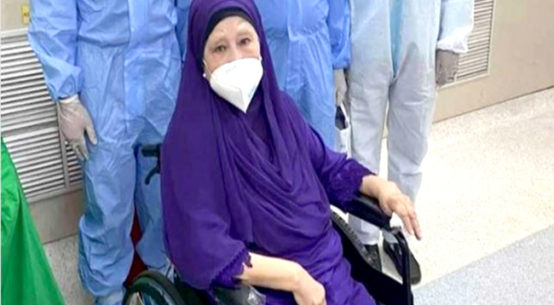
The Ministry of Finance, for the first time, is preparing rules for remitting out money to invest in another country amid growing concern over siphoning off a great deal of money illegally.
The rule says no defaulter will be able to invest the country’s money in foreign lands. If anyone wants to invest, he / she has to submit a certificate to the effect that there is no defaulted loans or restructured loans against him/ her.
In case the proposed investment did not roll out for any reason, the money should be returned to Bangladesh without any delay. Besides, Bangladesh Bank has to be regularly informed about the progress of re-remitting.
Failure to send money home will be considered as money laundering offense under Bangladesh’s law.
The Ministry of Finance together with its Financial Institutions Division have finalized a draft rules on ‘Public Capital Account Transaction (Equity Investment Abroad).’
Opinions have been solicited from the respective stakeholders on the draft. A memorandum awaits issuing in the form of rules as soon as the feedback is discussed, Finance Divisions officials said.
The draft rules state that in case of failure to invest and get the fund home, the proprietor, director, chief executive and officers of the applicant organization will be held liable.
In this case, measures will be taken in accordance with the provisions of the Prevention of Money Laundering Act and the Foreign Exchange Regulation Act, 1984. Besides, Bangladesh Bank will collect the money from the chief executive and proprietor of the concerned organization.
Former executive member (additional secretary) of the Bangladesh Investment Development Authority (BIDA) Navas Chandra Mandalsaid a defaulter cannot be encouraged to invest abroad.
He said: “If an amount was taken for investment abroad and then it was not invested there or it was not returned to Bangladesh, the event would be termed as money laundering. This provision has been incorporated in therules”.
Mandal was one of the people involved in formulating investment policies for Bangladeshi companies abroad.
The formulation of the policy is not over yet, he, however, said.
It is learned that at present there is no policy for any domestic company to invest in other countries.
This is for the first time the Bangladesh Bank took an initiative to formulate such a policy. But the initiative did not mature and that investment abroad continued.
The central bank is approving the investment of domestic companies or institutions in foreign lands on a case-by-case basis. However, a committee was formed last year by the previous Prime Minister’s Office to formulate policies for Bangladeshi companies for investing abroad.
An applicant must be an exporter. Institutions that have adequate status of quota for its export proceed can apply for remitting out the money for investment purposes, officials said.
However, the amount of the investment will be 20 percent of the average annual exports of the organization for the consecutive 5 years.
The proposed amount could be equal to 25 per cent of the net assets shown in the latest audited annual report of that organization. A businessman can’t invest more than any of the two counts.
The rules state that the company cannot be in arrears of any duty, VAT and income tax if it wants to invest. All types of import liabilities, including bank to bank debentures, will be considered unfit for investment if there is an inconsistent bill of entry against any import. In addition, according to the financial statements of the last 5 years, the applicant company must be financially well-off.
It further said that the sector invested abroad should be the source of foreign exchange earnings. Besides, there should be a possibility of increasing the country’s exports, creating employment for Bangladeshis abroad and other opportunities.
The applicant organization must have skilled and experienced manpower or human resources to manage, finance and invest in the international business of that company. The prerequisites further states that the dividends earned from the investment should be brought home within thirty days after a financial year ends.
The draft states that investments cannot be made in countries that do not have diplomatic relations with Bangladesh. In addition, investments cannot be made in countries that have been banned by the United Nations (UN), the European Union (EU), and other foreign regulators.
In addition, the Financial Action Task Force (FATA) has issued a public notice identifying illegal transactions and taking necessary action, where investment is prohibited.
It has also mentioned that investments can be made in countries where Bangladeshi nationals are not barred from working and remitting their earned money back home.
In addition, investments can be made in countries with which Bangladesh has bilateral tax exemptions, public bilateral capital investment, development, and expansion and conservation agreements.
Lastly, it said the destined country must have laws to remit out the money, its remaining partafter investment and capital gain. It should also allow profit, dividend, interest, proceeds from sales of shares, abolition of investment etc., in a given time.
According to the draft rules, the investing company will not be able to take any action that will tarnish the image of Bangladesh. And, the proceeds from the investment can be reinvested without the approval of the Bangladesh Bank.


